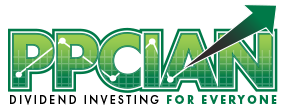As you may know from my about me page, I majored in computer science at Stanford University. I truly feel like my computer science background prepared me perfectly for the corporate pay per click career path. Why? When you’re dealing with extremely large campaigns (especially across a portfolio of verticals), it’s nearly impossible to scale without automation of some sort. As someone who’s product managed several internal automation tools and who has worked with third party solutions, I’m thrilled to start discussing PPC automation today. I’ll start off with an overview of my automation thoughts and will follow up with a series of in-depth PPC automation articles over the coming months.
Why Automate Corporate Pay Per Click Campaigns?

What’s the key difference between affiliate marketing and corporate pay per click marketing? There are a few, but the big one is scope. In the affiliate world, you can make quite the decent living by focusing on a very specific niche. However, in the corporate world, it’s all about going big. You’re dealing with millions of keywords, unreal budgets, extremely complex accounts, often across multiple categories.
As a computer science guy at heart, I like to equate manual campaign management to The Mythical Man Month. After a certain point (usually after 5-10 campaign managers), throwing more marketing professionals at your corporation’s campaigns will simply not help. Actually, more people at a certain point can actually slow you down! Here’s where automation comes in: Automation will take your program to the next level. Automation will assist your human team in executing certain aspects of PPC faster and more accurately than possible through manual campaign management. Automation will get you over that plateau your team is facing.
Another critical point: Corporate PPC is an extremely competitive field. You need to assume your competitors are investing in automation. If you’re not, your PPC campaigns will fall behind. You simply cannot keep up without automation. For this reason alone, it’s extremely important to automate aspects of your PPC campaigns to maintain your edge against the competition.
What Aspects of PPC Should You Automate?
I want to be clear from the beginning: I’m not one of those guys that recommends automating all aspects of PPC. In my opinion, that’s a recipe for disaster. I’ve seen it play out before: You automate everything, the campaigns start trending down, and then a manual manager needs to jump in and fix everything. What I am arguing however is that automation should play an absolutely critical role supporting your human campaign management team. Below are just a few aspects of PPC that are totally worth automating.
Automate PPC Bidding: Biding is perhaps the primary aspect of PPC that should be automated. Bidding is very tedious, it’s totally based on data, and it’s very time consuming. In my experience, it’s very easy for humans to make major mistakes with manual bidding.
Automate PPC Reporting: There’s no doubt about it, reporting is extremely important. Corporate PPC is all about data analysis and data-driven action. If you automate your reporting, your team can spend more time analyzing and driving action versus pulling numbers together.
Automate Keyword Generation: I have mixed feelings on this one because some of the best gains in PPC have been a direct result of creative keyword generation. At the same time, you simply cannot scale your keyword set effectively without automation. In a product shopping vertical? Leverage your catalog to generate keywords as new products are released. Looking to deploy more exact match queries for increased bidding efficiency, targeting, and position? Deploy exact match versions of all raw user queries that drove conversions. Looking to leverage the competitive intelligence of your industry? Pull keyword lists from tools such as Trellian, Wordtracker, and KeyCompete.
Build Versus Buy and a Few Great SEM Platforms
As discussed in the introduction, I’ve both built and bought PPC automation tools during my career. While building was the only option when I first got started (there were simply no tools available on the market for purchase), buying is a lot easier these days (thank goodness).
As a general rule, I’m much more in favor of buying versus building for smaller organizations. Small organizations need to focus on their core business, they simply don’t have the resources to effectively build and maintain automation tools. There’s actually quite a bit of overhead in simply maintaining SEM tools due to search engine API upgrades that happen regularly. Moreover, the tools available on the market these days are absolutely astounding. Two tools that I highly recommend are Marin and Kenshoo.
Now, if you’re at a larger organization, the decision can become a bit more difficult. Because most SEM platforms out there operate on a percentage fee model, buying at a large organization can become very expensive (unless you’re able to negotiate a great deal). There may come a point where building becomes more cost effective than buying. One thing is for sure: SEM automation is very high leverage and should be an important decision that every corporate SEM team considers regularly.
Image of Automation Gears © iStockPhoto – sbayram
